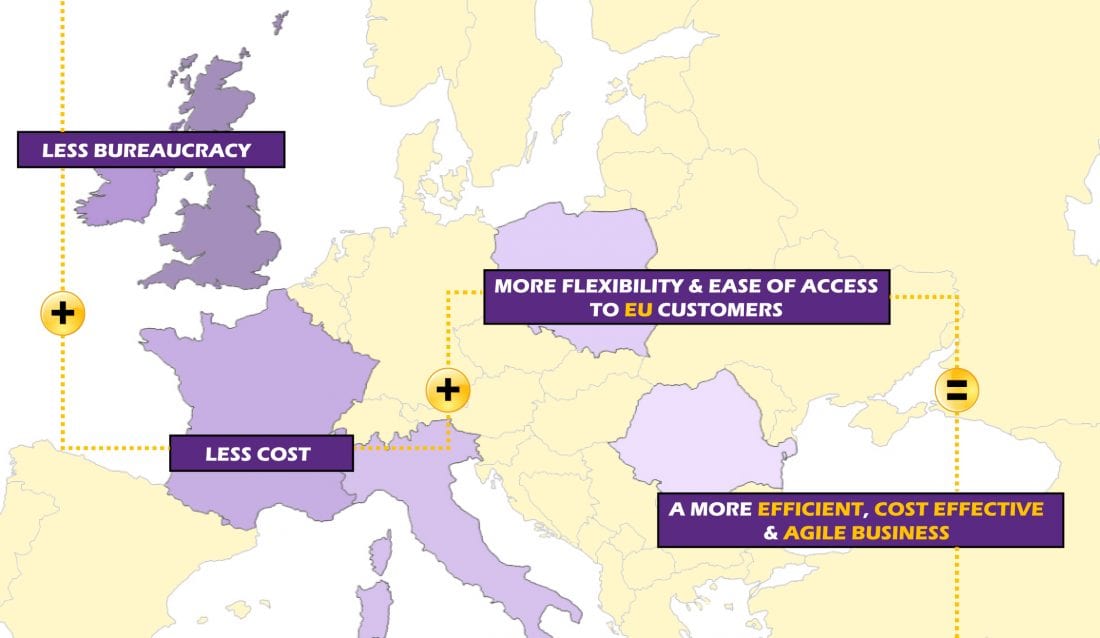
Three strong reasons to stay in the EU
Reading Time: 4 minutesIn our blog a few weeks ago we nailed our colours to the EU mast: we’re in.
We’re the first to acknowledge that the referendum is a personal decision – but as both sides keep reminding us, it is also a commercial one, so we felt it was time to let some of our own stats (and a few anecdotes) do the talking.
Here are some Fashionizer facts:
- 30% of our clients are in the EU. The national figure for UK exports to EU countries is just short of 50%.
- 97% of our fabrics are sourced in the EU.
- 100% of our manufacturing takes place in the EU.
- 30% of our staff are EU nationals from outside the UK (pretty handy when you need to write to a client in Italian, French or Spanish, to name just a few of the languages spoken in our team).
But here’s the fact we like best of all: dealing with suppliers and clients in the EU involves practically no paperwork! The oft-quoted phrase ‘Brussels red tape’ is pretty much meaningless to us, not least because we do so much of it online.
We might buy the fabric in France for example. Most will be sent directly to the factory in, say, Portugal. The remainder will be sent to the Fashionizer office in London for made-to-measure garments and for quality and colour control. The beauty of this arrangement is that it is seamless: no customs, no VAT, no forms to fill in.
This makes it a very flexible and agile system: we are able to store the fabric we own in the factory in the EU. All it takes is a straightforward document between our two companies, nothing else. It enables us to reorder uniforms more quickly – and that’s a definite benefit to clients. A Brexit would mean a whole range of new paperwork, from customs and VAT declarations and would limit our ability to move materials around quickly to the benefit of our clients.
Hard to believe that it can be that simple? Well, neither could the customs officials of one European country. It was back in 2004 and the country concerned had just joined the EU. We had engaged a factory in the newly joined country to make some uniforms for us and we were trying to send fabric from Switzerland directly to the factory, with the finished garments due to be sent to the UK. The country’s customs officials couldn’t work out the new paperwork – so the result was that we had to send the fabric back to Switzerland from the border, then from Switzerland into the UK, then send it on to the factory, who then sent the finished garments back to the UK. Thankfully that was only a blip from the newbies, and they are now embracing the full efficiencies of EU membership.
Then there is the cost. We recently had to send a very small package to a non-EU country. The value of the goods was £180. The amount of duty that was being demanded by the importing country was £108. Had we been exporting to an EU country, the duty would be… Well, there wouldn’t be any, so £0 – or zero Euros, if you prefer. This was something of one-off, but it doesn’t take a degree in Economics to work out the impact on staff and administrative costs, and consequently our bottom line.
What will happen if the UK leaves the EU is really anyone’s guess, but what we do know is that it will create uncertainty. We are already seeing signs that clients are holding back on orders until they know what the outcome of the vote will be. It will slow everything down in the short-term, as our EU clients try to work out what the new rules and processes are (duty payments for example) – and, trust us, no business wants that.
Comments: 0





